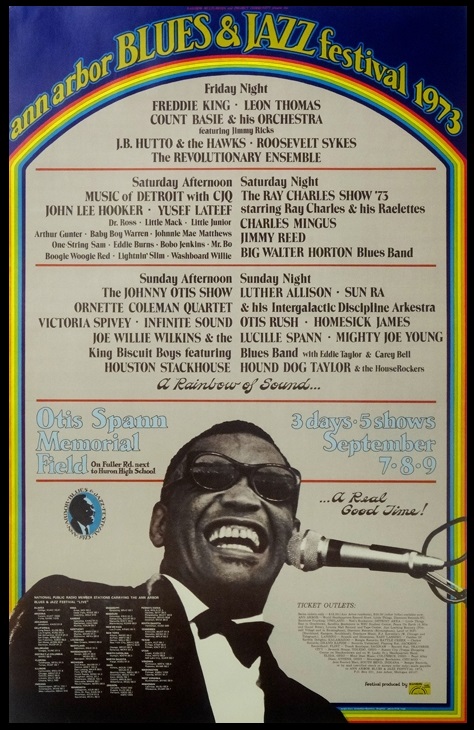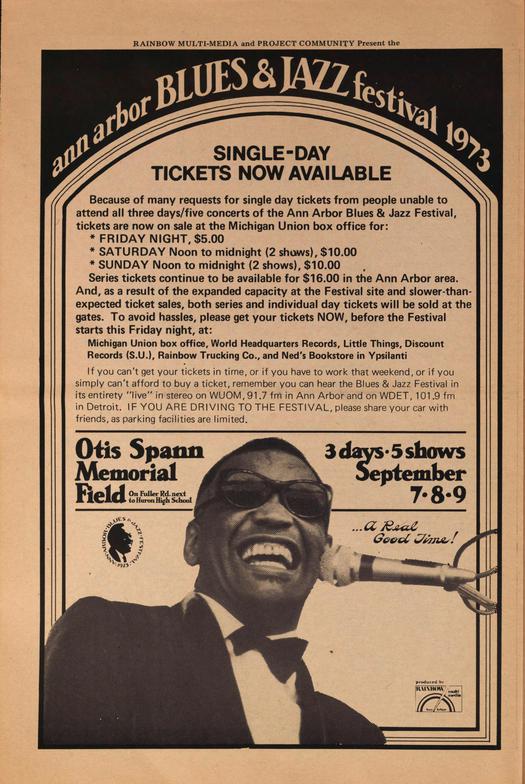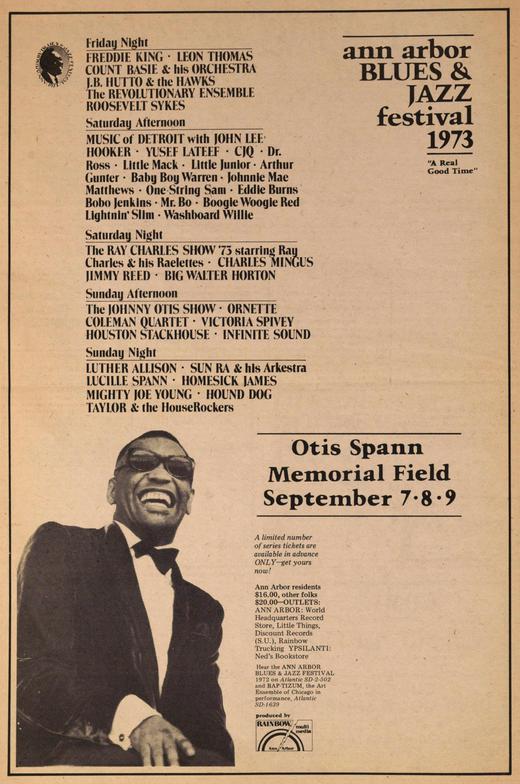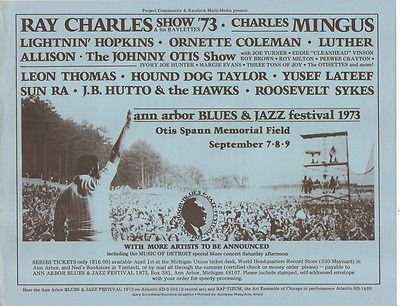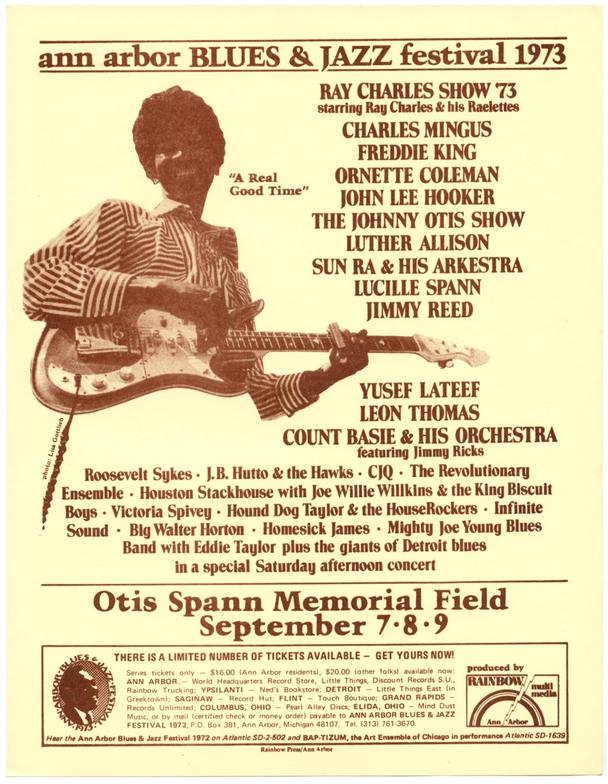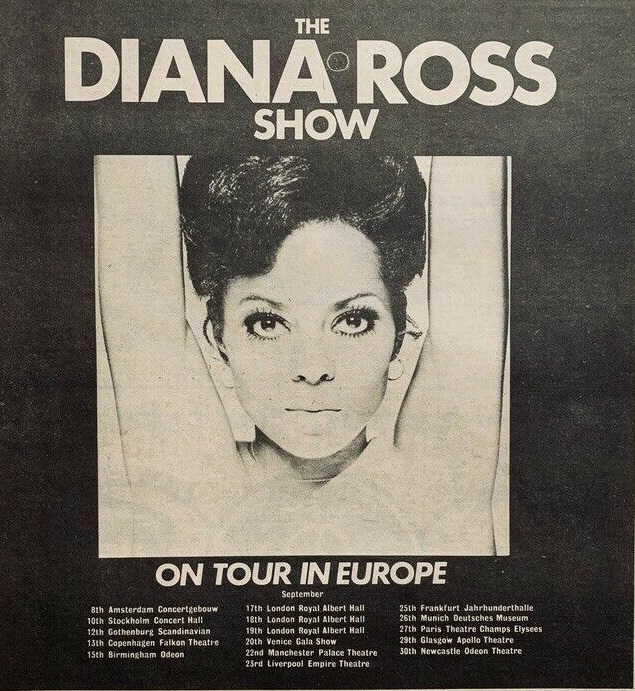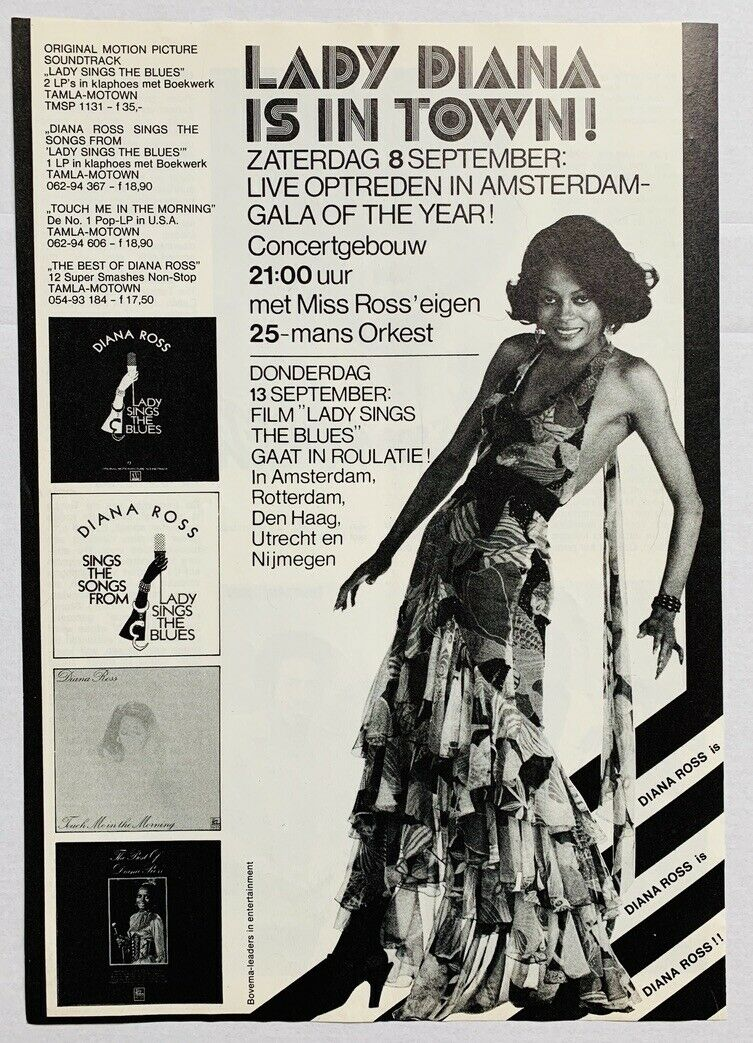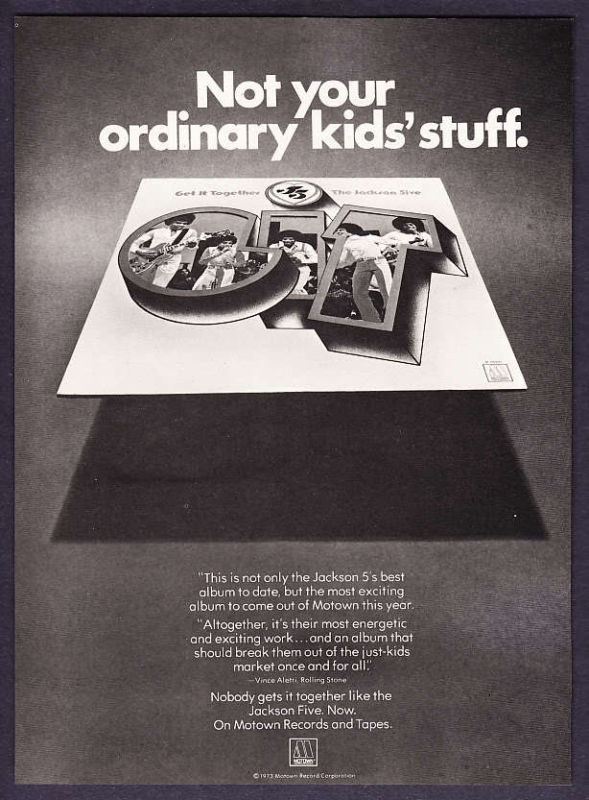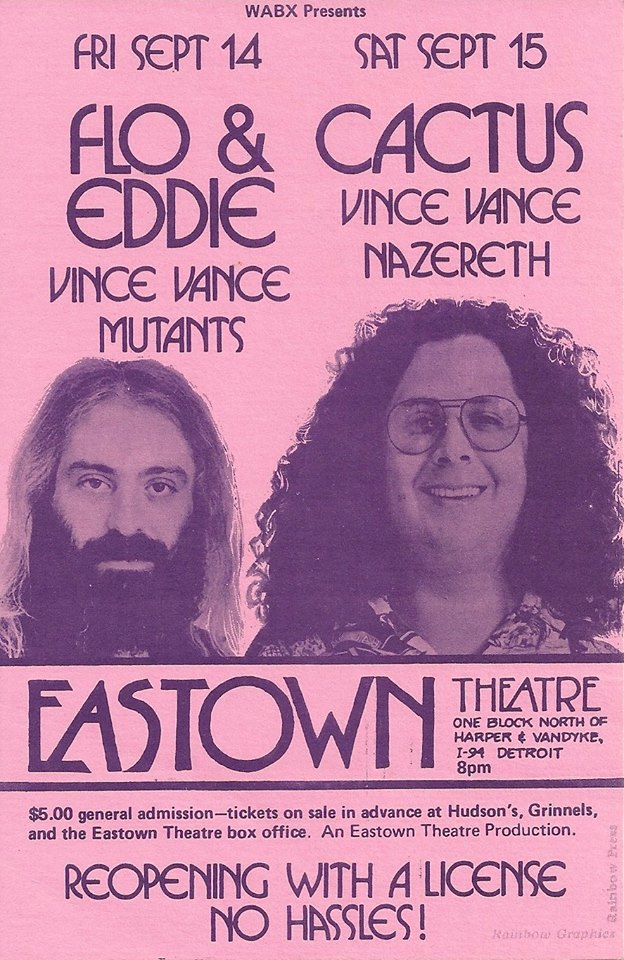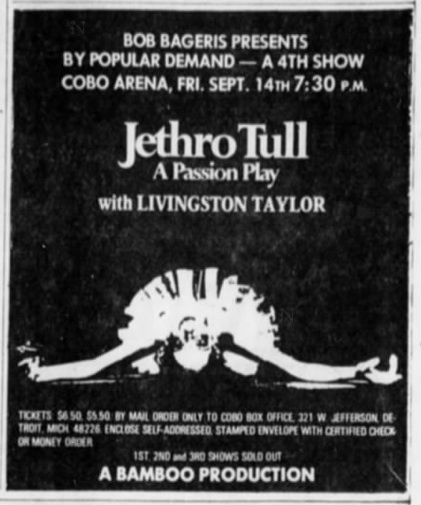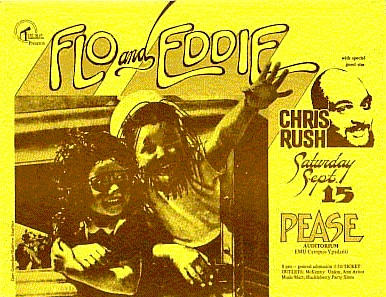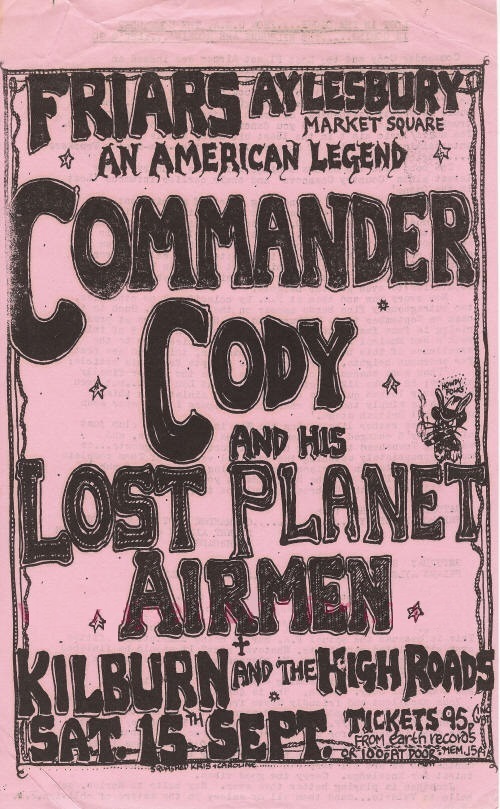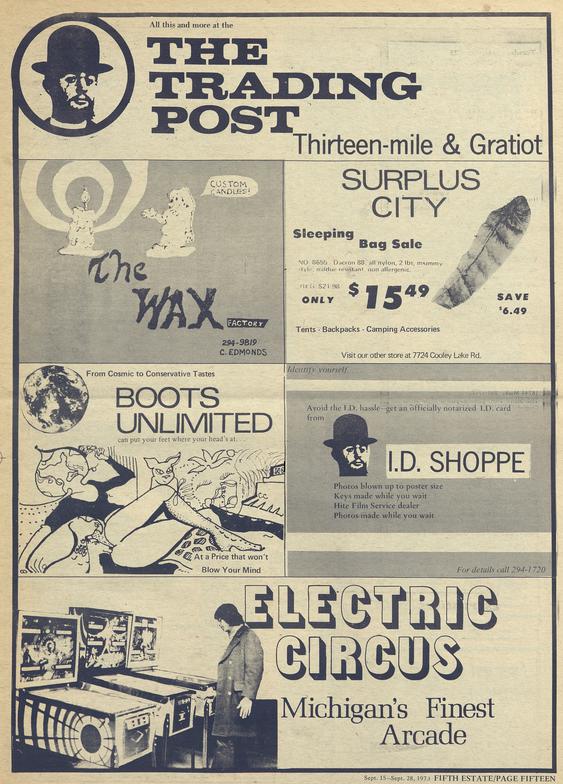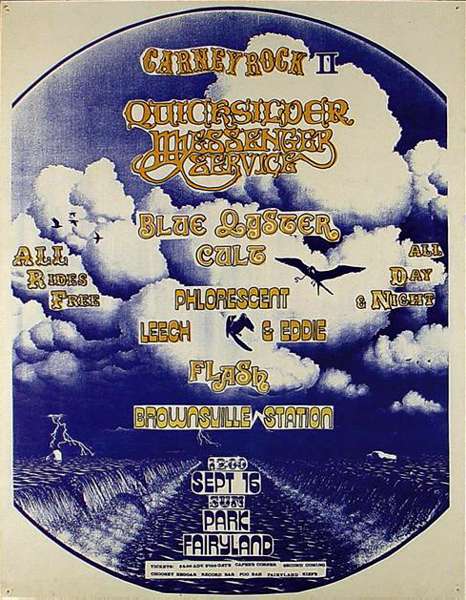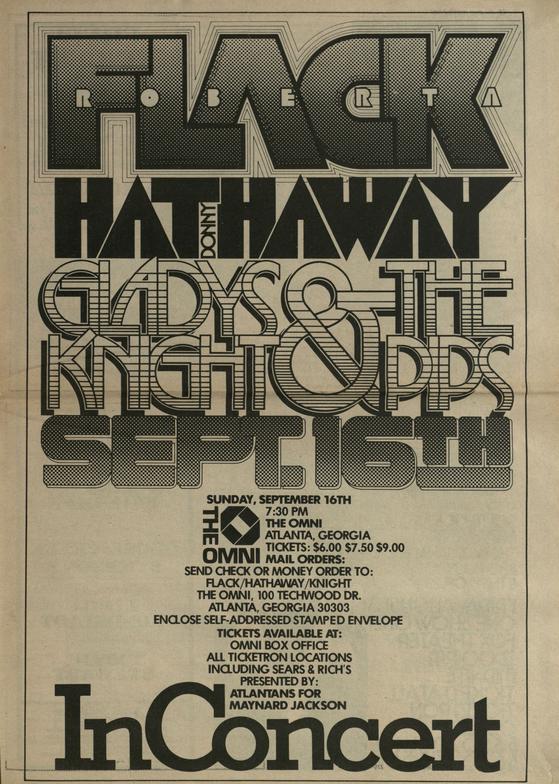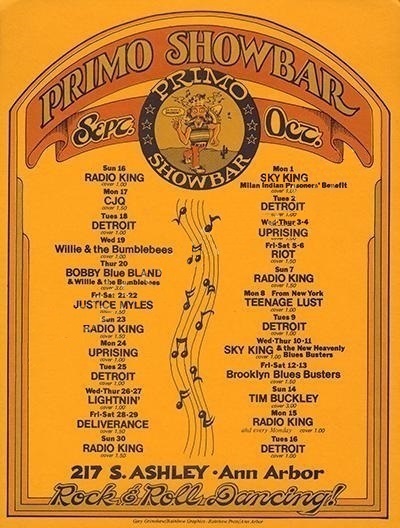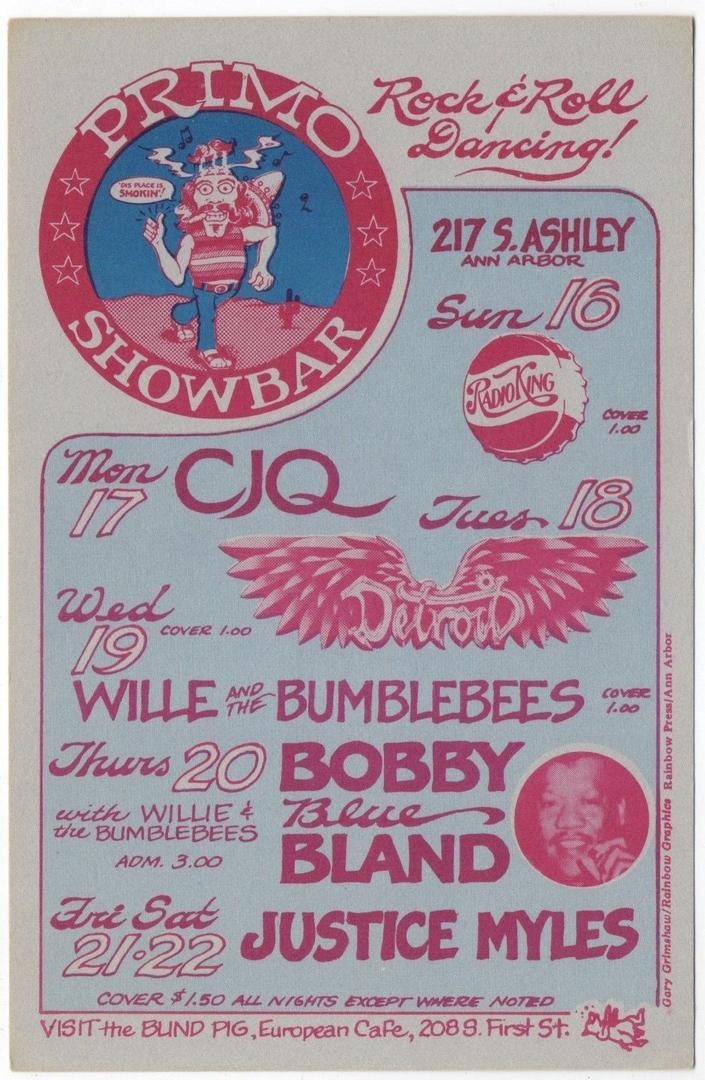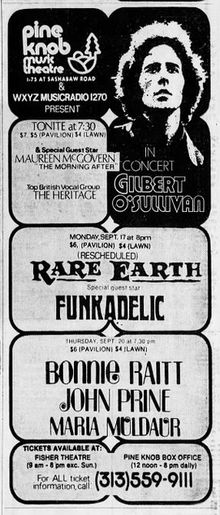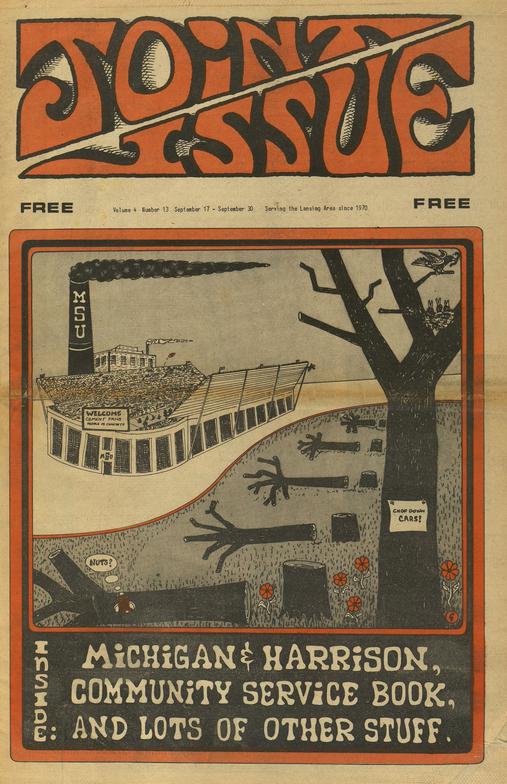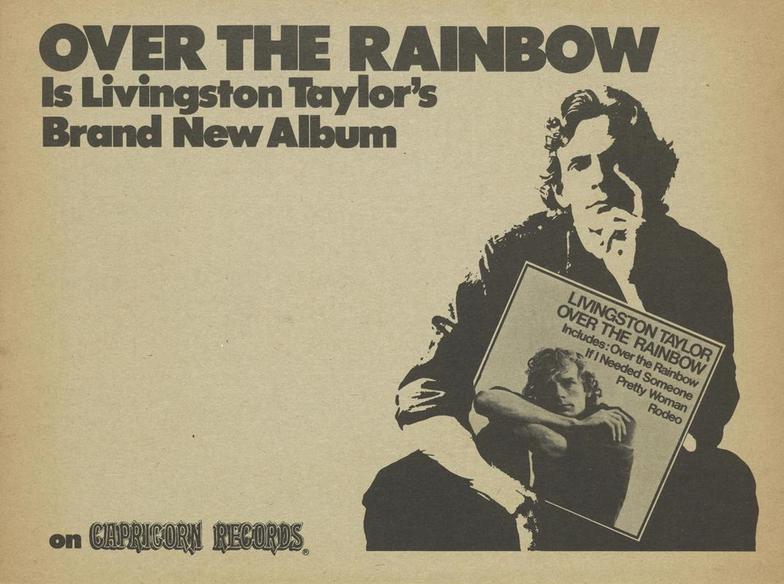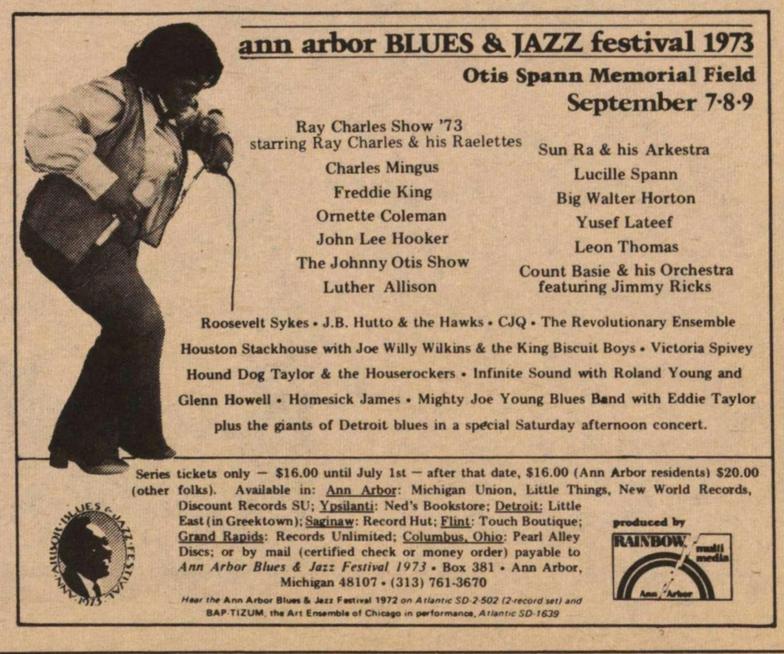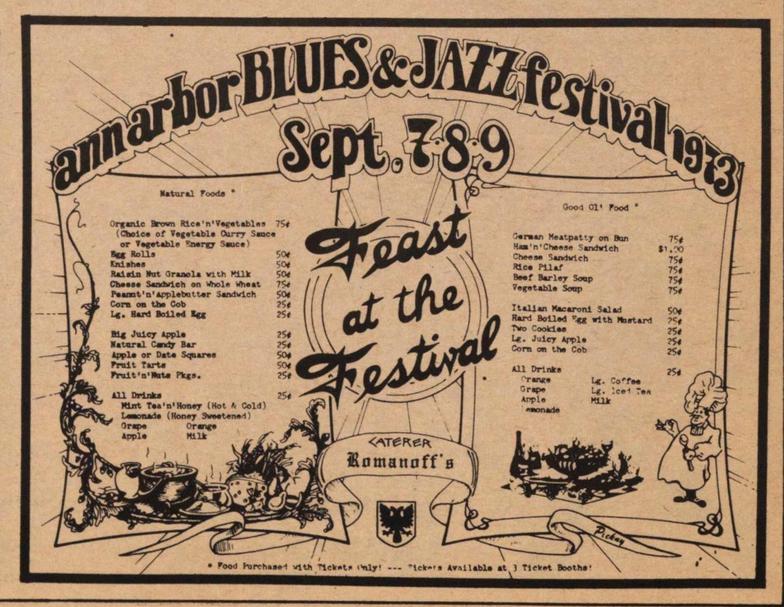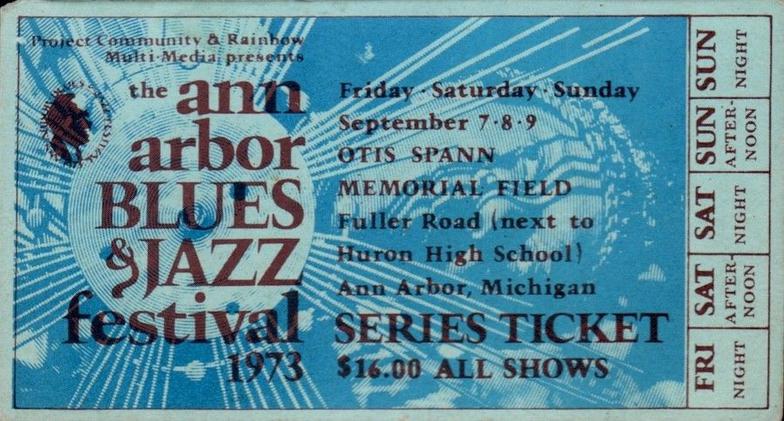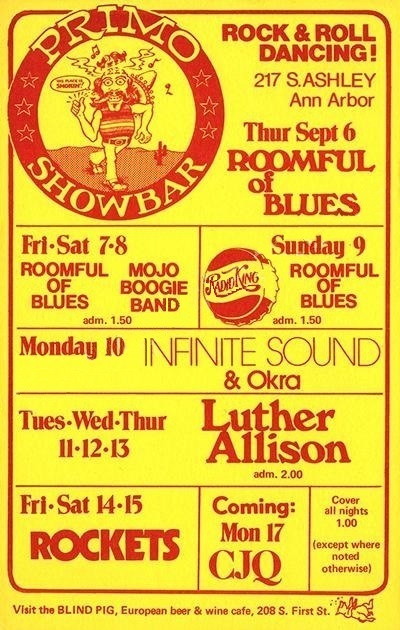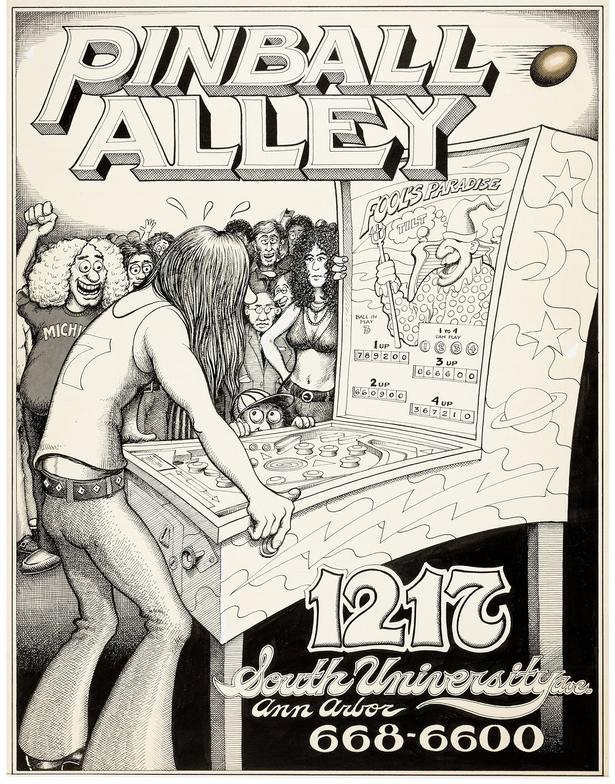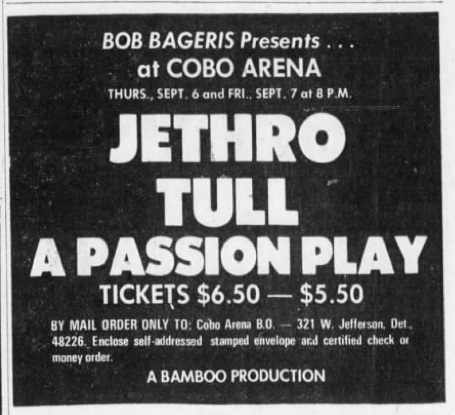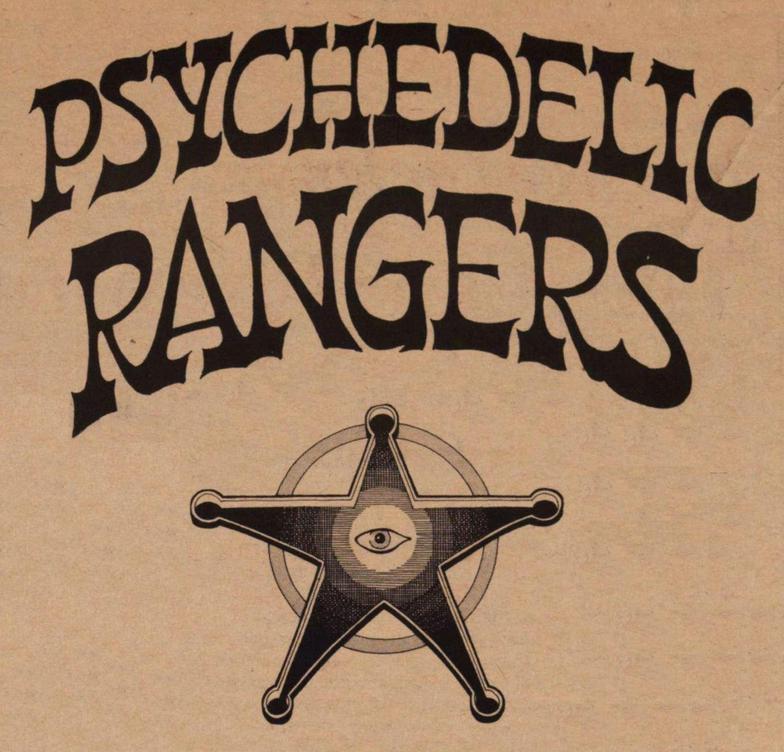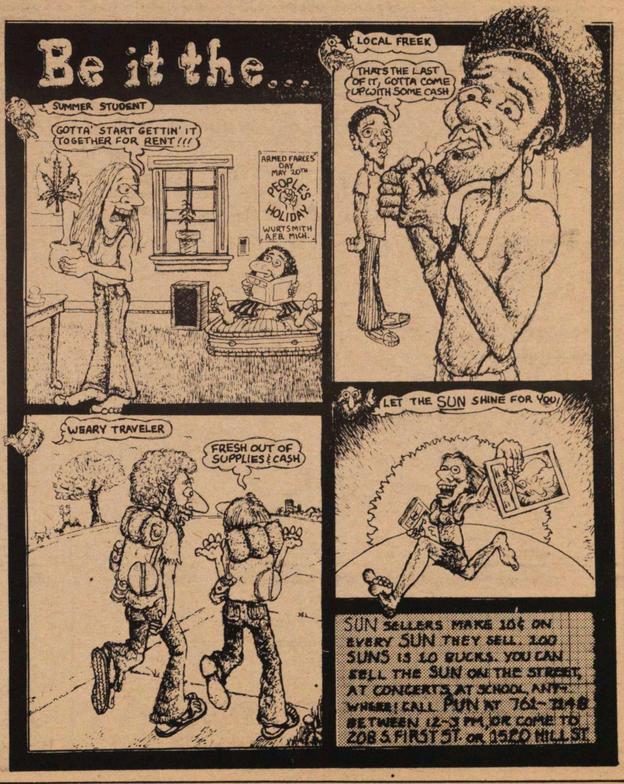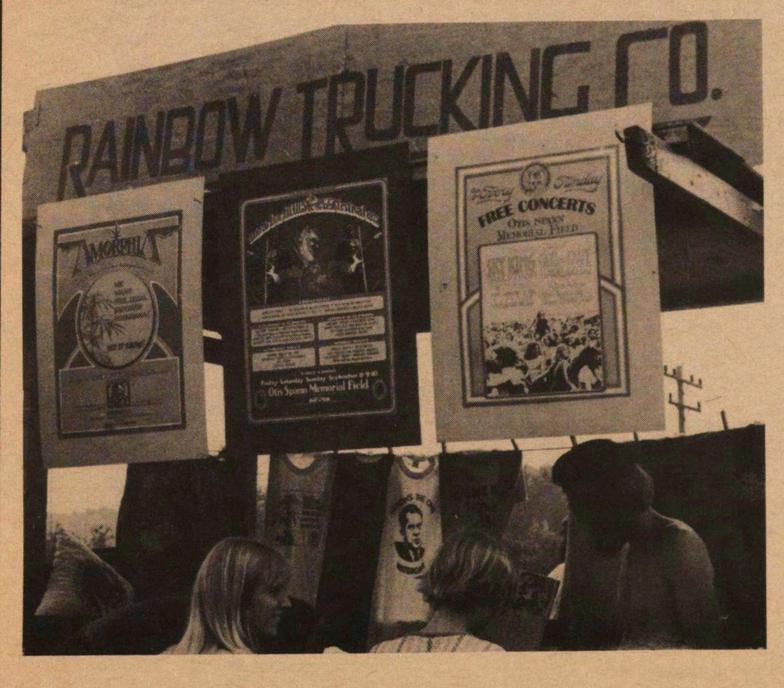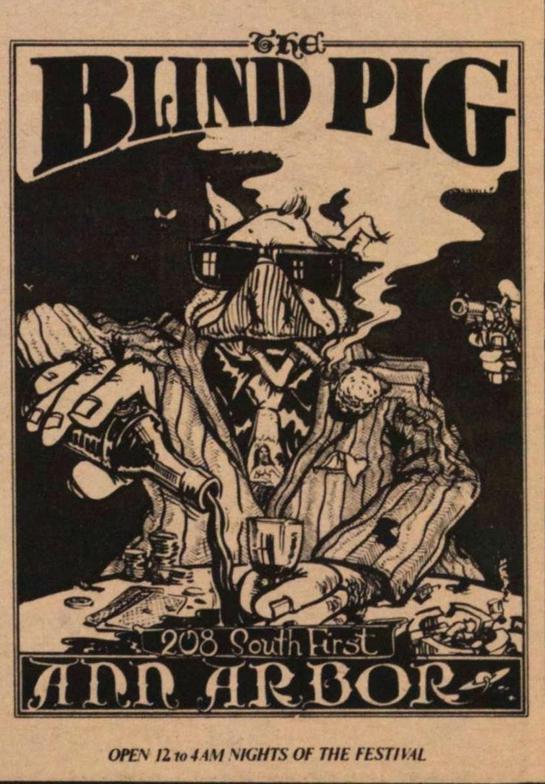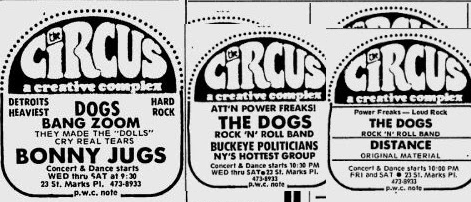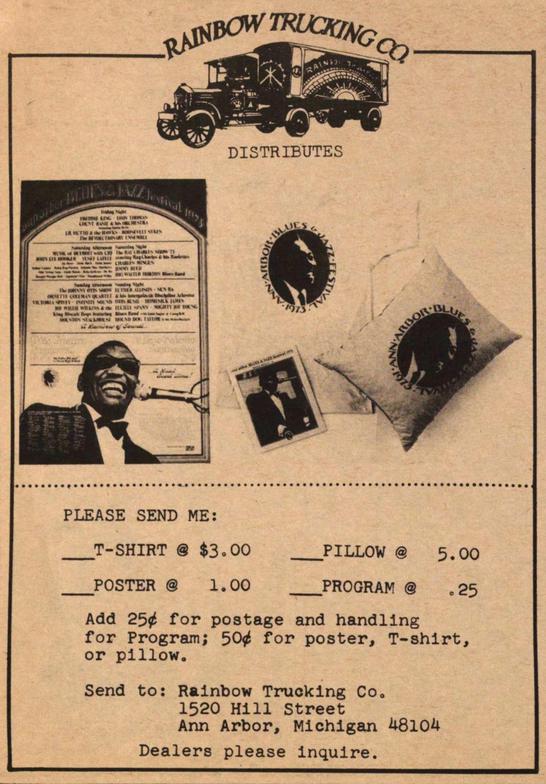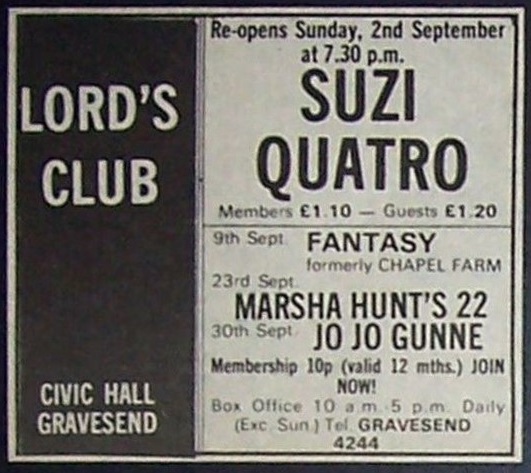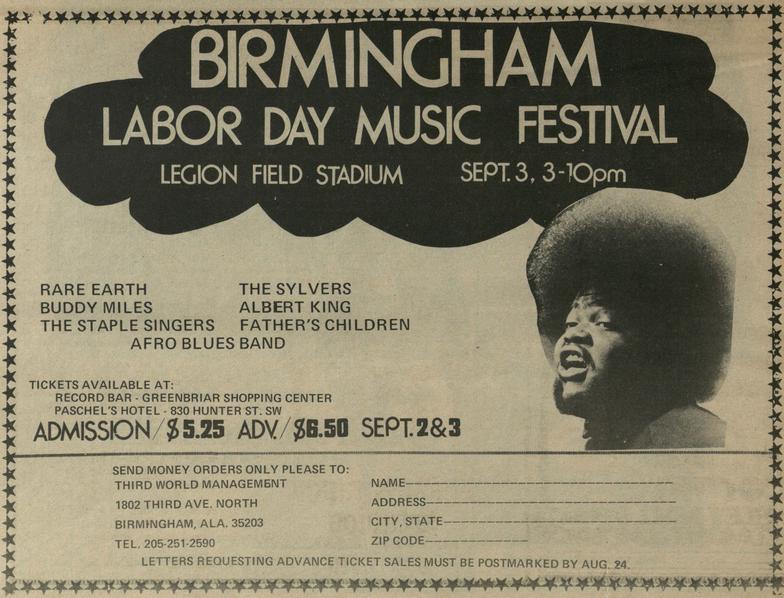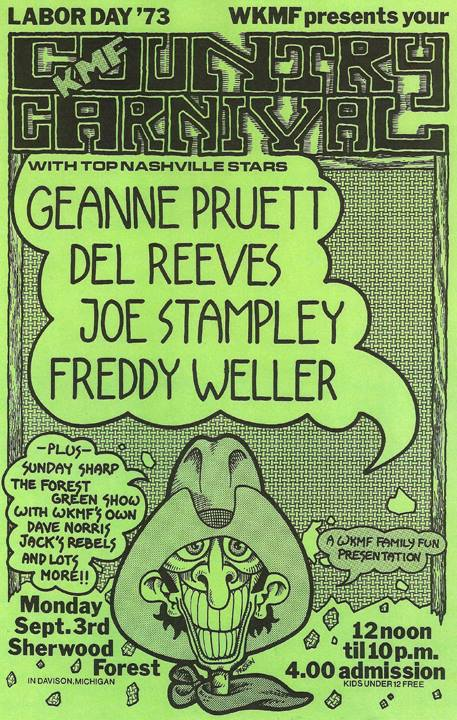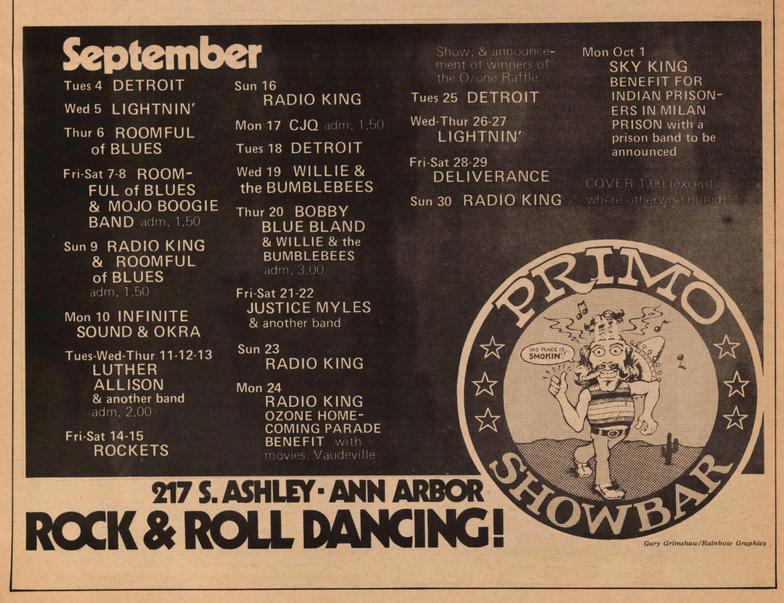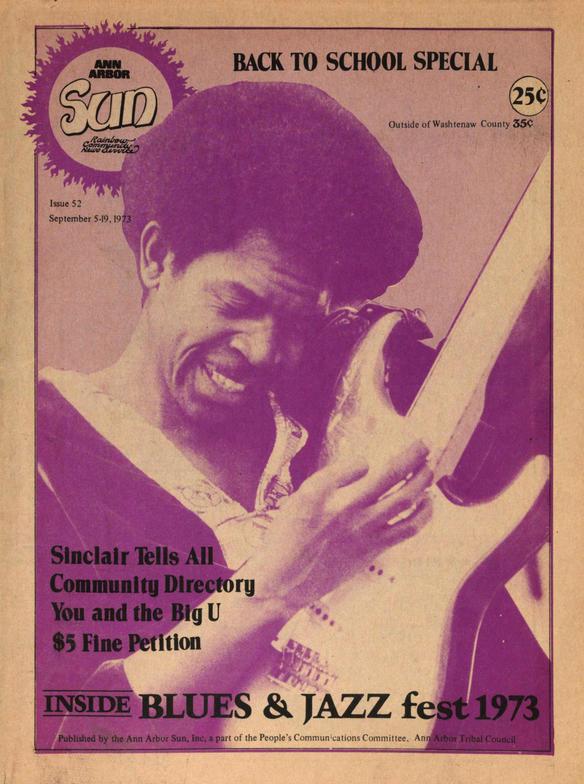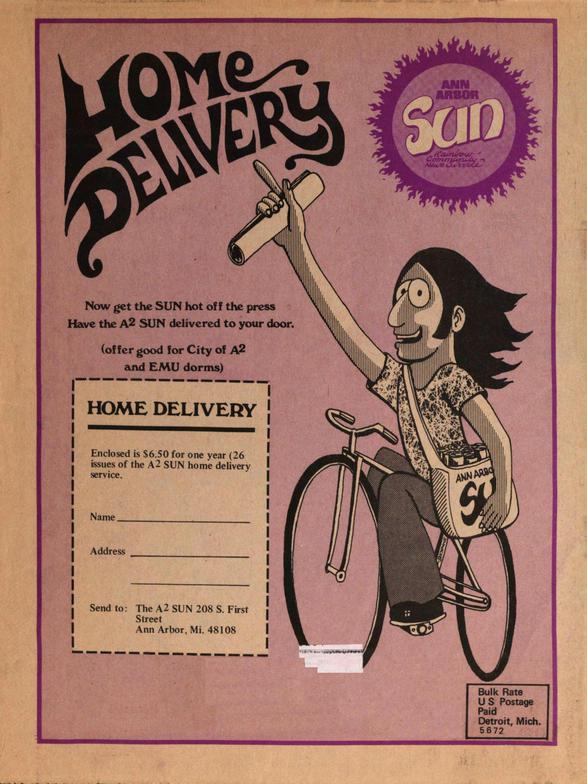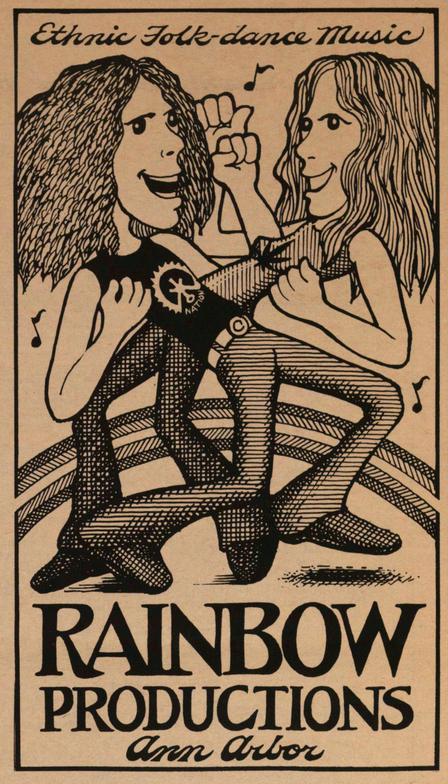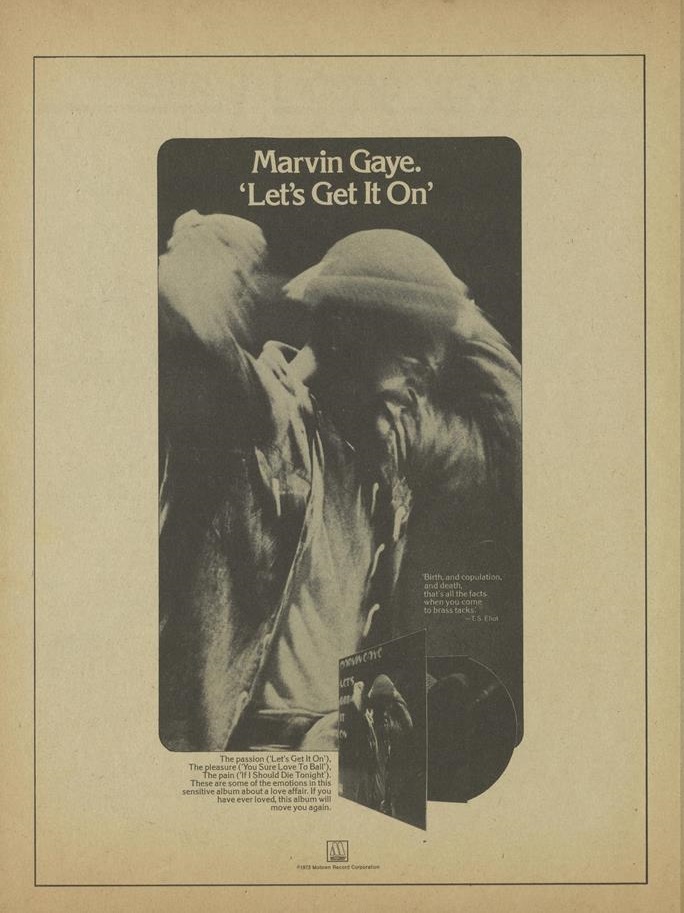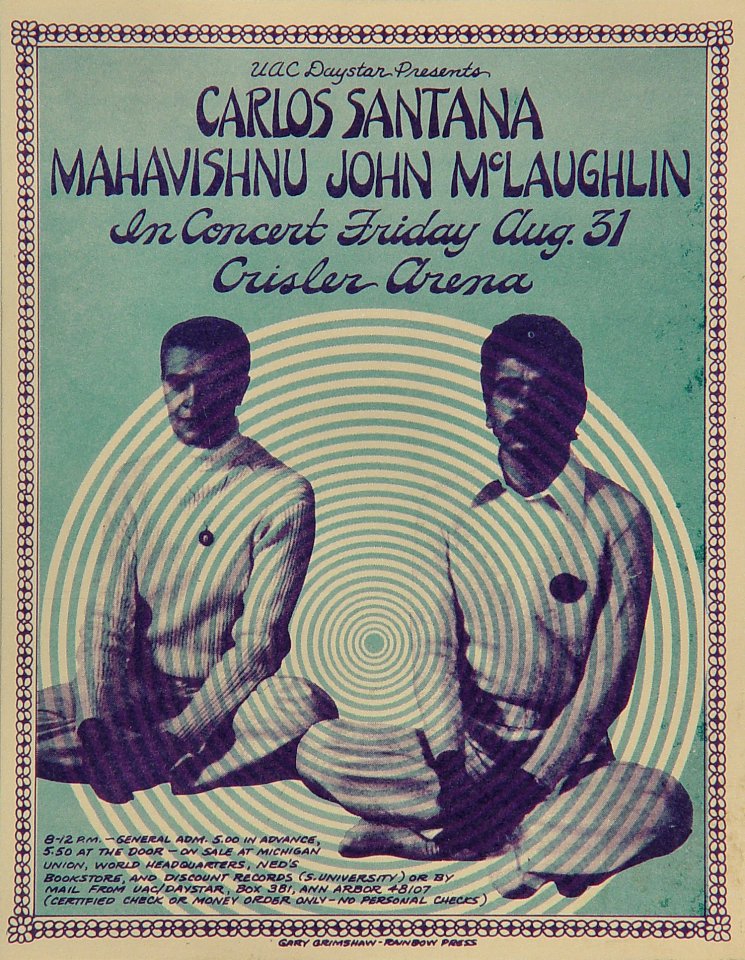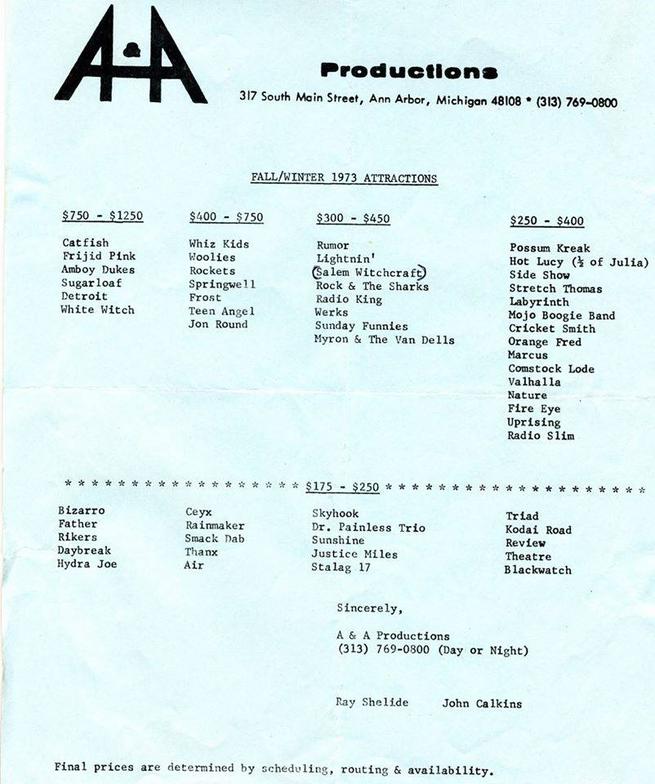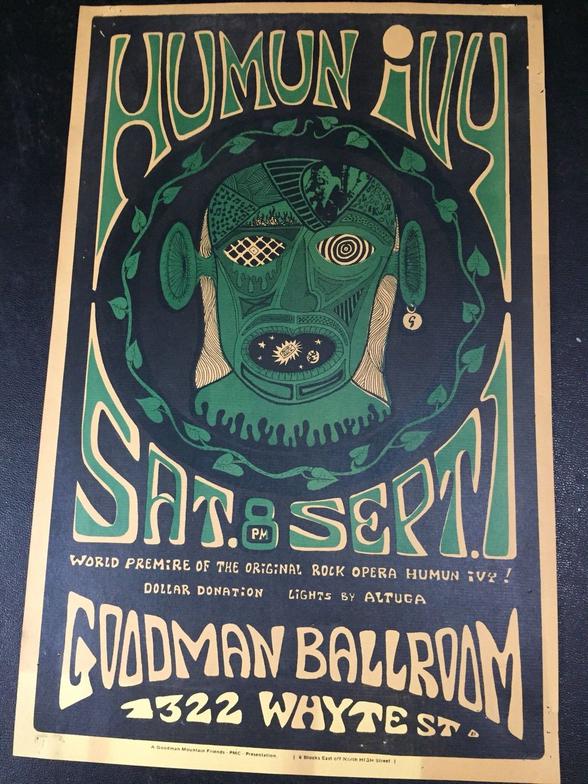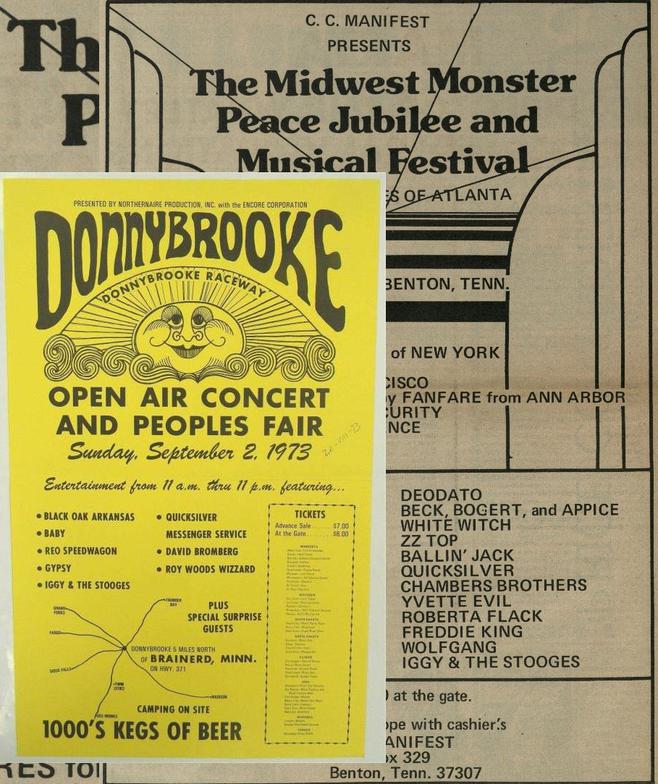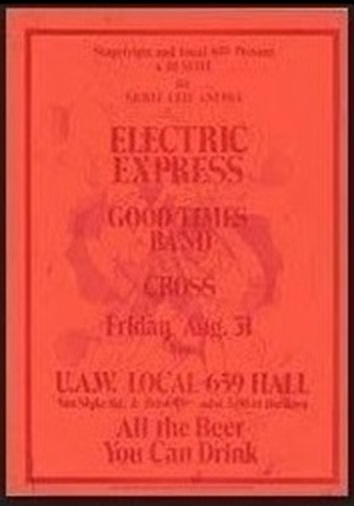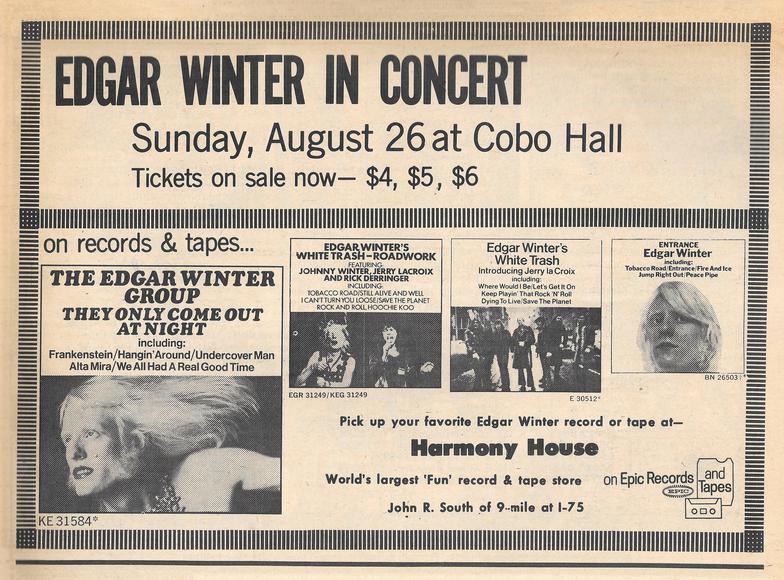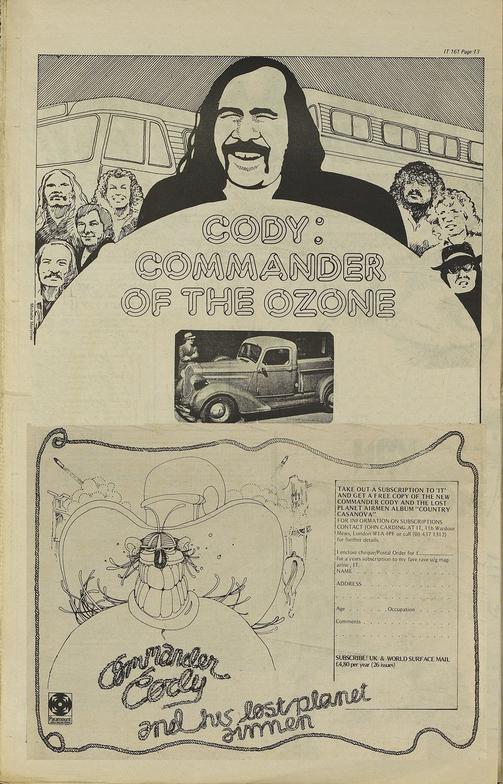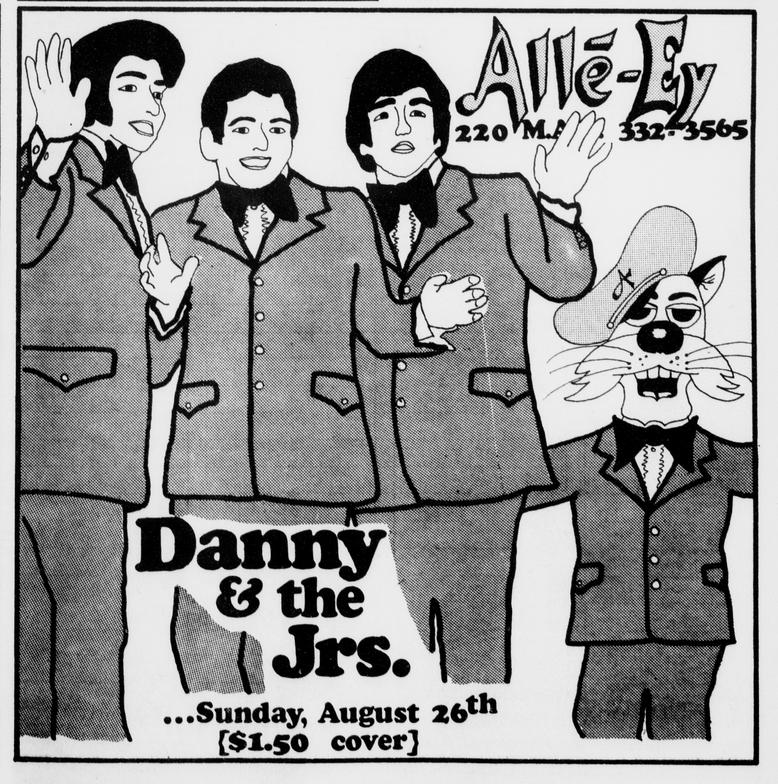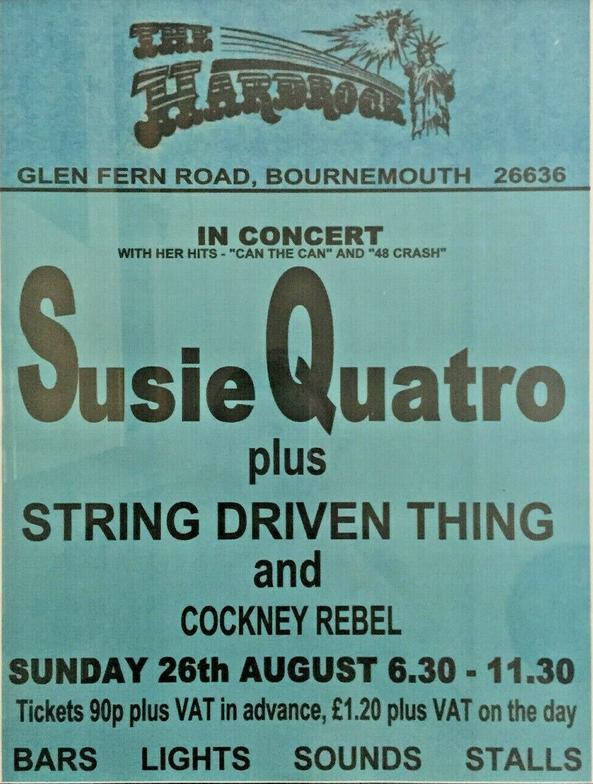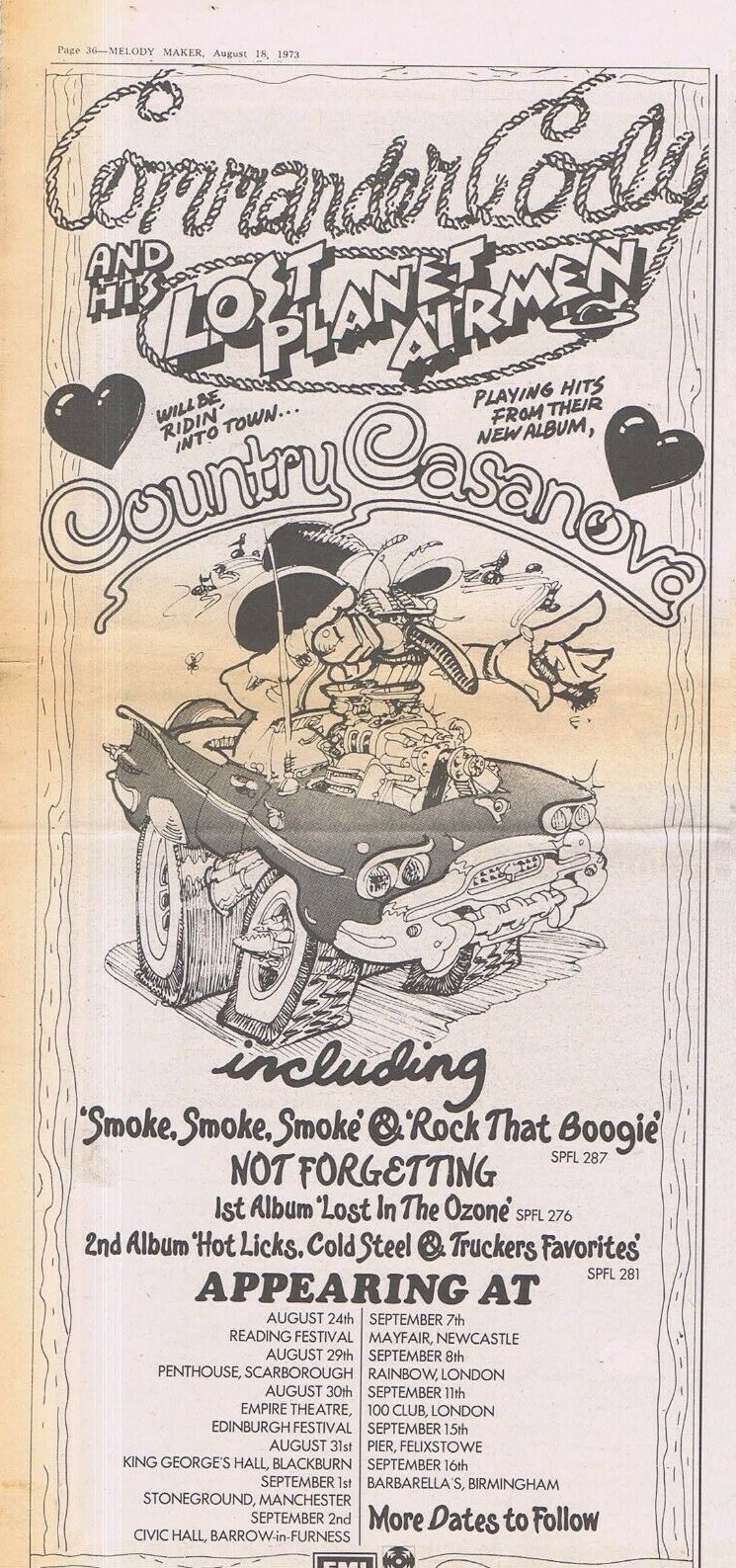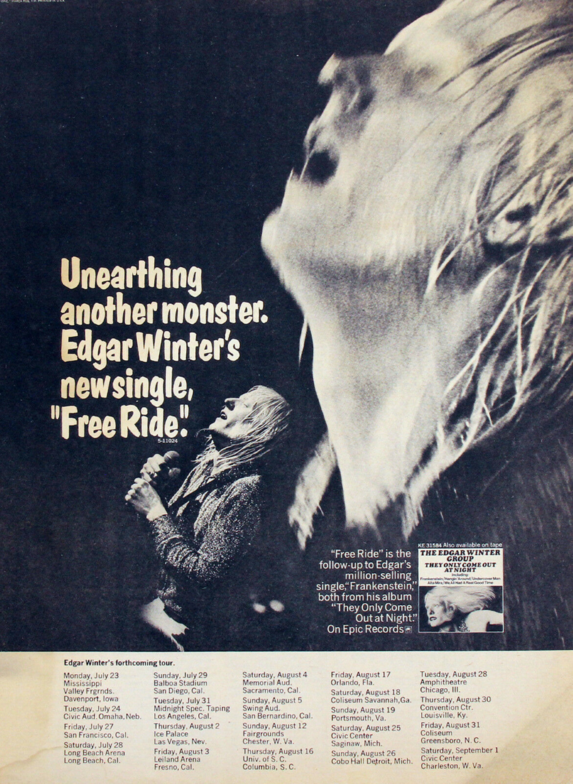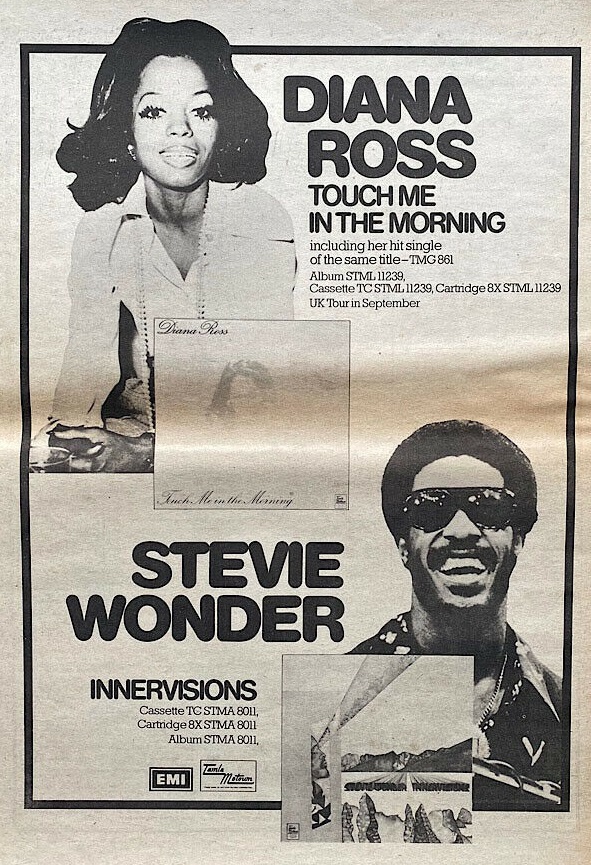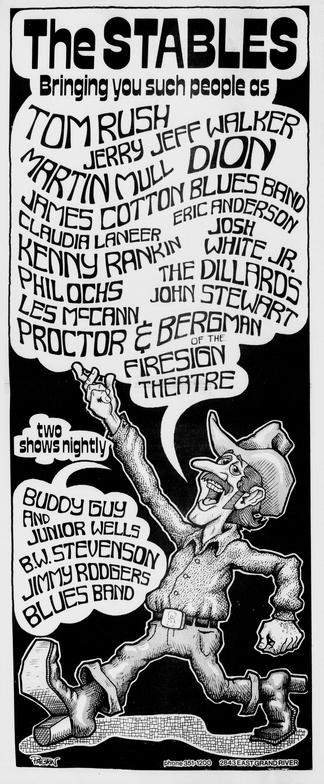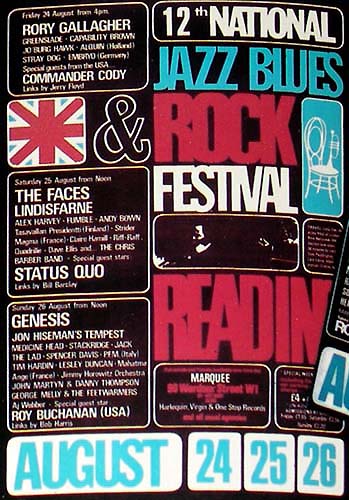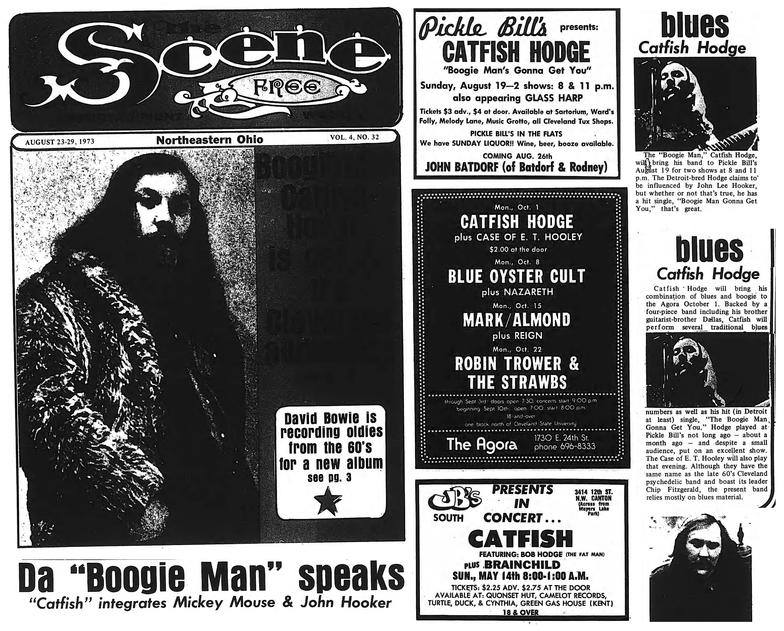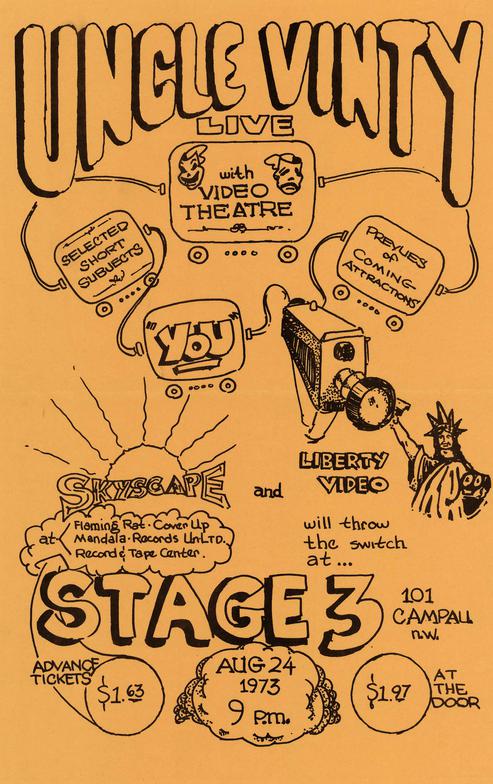Splatt Gallery
Double click here to add text.
Splatt Gallery's History of Michigan Music Posters
Volume Nine - 1973 - Page Twelve
***********************************************************
Gary Grimshaw poster for the 1973 Ann Arbor Blues & Jazz Festival in Ann Arbor, Michigan, September 7-9, 1973.
Full-page newsprint version of Gary Grimshaw’s poster for the 1973 Ann Arbor Blues & Jazz Festival in Ann Arbor, Michigan, September 7-9, 1973.
An alternative layout of the full-page newsprint poster for the 1973 Ann Arbor Blues & Jazz Festival.
Gary Grimshaw handbill for the 1973 Ann Arbor Blues & Jazz Festival in Ann Arbor, Michigan, September 7-9, 1973.
Gary Grimshaw flyer for the 1973 Ann Arbor Blues & Jazz Festival in Ann Arbor, Michigan, September 7-9, 1973.
Poster/ad for a sixteen date European tour by Diana Ross, starting off in Amsterdam on September 8, 1973.
A full-page ad for Diana Ross appearing in Amsterdam on September 8, 1973.
A full-page Motown Records ad for the eighth studio album by the Jackson 5, released on September 12, 1973. Motown promoted the album as the group’s growth away from the “just-kids market”, although Michael Jackson was still only 14 years old when the album was recorded and 15 when it came out.
After two weekends of shows, re-opened without a license, the Eastown was closed down again by a court injunction. But a ruling on the original 1971 closing was finally made in favor of Eastown Productions and they were able to re-open yet once again, on September 14, 1973. Gary Grimshaw’s handbill with Flo & Eddie, Vince Vance and the Mutants on the 14th, and Cactus, Vince Vance, and Nazareth the following night.
Newspaper ad for Jethro Tull at Cobo Hall in Detroit, Michigan, September 14, 1973. It was a fourth added show, due to popular demand, previous shows were on September 6, 7 and 13.
Gary Grimshaw poster for Flo & Eddie at Pease Auditorium in Ypsilanti, Michigan, September 15, 1973.
Poster for Commander Cody & his Lost Planet Airmen in Aylesbury, England, September 15, 1973, which may have been the final show of their UK tour which had kicked off three weeks earlier at the Reading Festival.
A full-page ad by an unknown artist for the Trading Post shopping mall and Electric Circus Arcade in Roseville, Michigan from the September 15, 1973 issue of the Fifth Estate newspaper in Detroit.
Real nice poster for Carney Rock II at Fairyland Park in Kansas City, Missouri, September 16, 1973, that looks like the work of Austin, Texas artist Jim Franklin. With Brownsville Station, who somehow managed to get in on every festival that would pop up, “they would just jump on a plane with their Marshalls and drums kitted up and go”.
According to some accounts, neither Blue Oyster Cult, nor Flo & Eddie showed up, but a second Michigan band, Rare Earth, did.
Poster/full-page ad with Gladys Knight & the Pips in concert with Roberta Flack and Donny Hathaway at the Omni in Atlanta, Georgia on September 16, 1973. Seven months since leaving Motown Records, the group had just released the single "Midnight Train to Georgia" on Buddah Records which would become their biggest hit and their signature song.
Gary Grimshaw poster for the Primo Showbar in Ann Arbor, Michigan, September 16, 1973 through October 16th.
Gary Grimshaw handbill for the Primo Showbar in Ann Arbor, Michigan, September 16-22, 1973.
Newspaper ad for the Pine Knob Music Theatre in Clarkston, Michigan with Funkadelic opening for Rare Earth on September 17, 1973.
The front cover of the September 17, 1973 issue of the Joint Issue newspaper with artwork by the mysterious artist “G”.
Volume Nine - 1973 - continues - HERE
A Capricorn Records ad for Livingston Taylor, who opened the third and fourth shows of Jethro Tull’s “A Passion Play” at Cobo Arena, September 13-14, 1973.
Two more ads for the 1973 Ann Arbor Blues & Jazz Festival in Ann Arbor, Michigan, September 7-9, 1973.
Series ticket for the 1973 Ann Arbor Blues & Jazz Festival in Ann Arbor, Michigan, September 7-9, 1973.
A story in the September 6, 1973 edition of The Michigan Daily newspaper in Ann Arbor reported, “A year ago there were only two pinball halls on campus. There are now at least seven, and they’re usually crowded: Tommy’s Holiday Camp, Cross-Eyed Moose, Pinball Alley, Summer of Forty Too, Dragon Inn, and Lew’s Cellar Arcade.”
Gary Grimshaw’s poster for Pinball Alley on 1217 South University may date as far back as October 1972, at which time there were at least three pinball halls in Ann Arbor, but the above author may be forgiven in slightly dramatizing the sudden growth.
The earliest mention of pinball machines in Ann Arbor is found in a May 1937 article, when the State Supreme Court of Michigan declared the machines were illegal, calling them “gambling devices” and “definitely not games of skill”. A few months later, the State’s Liquor Control Commission banned all pin games and slot machines from the premises of all beer stores and liquor stores that were licensed by the commission.
An editorial in an August 1937 edition read: “It is with mixed feelings that we note the slow passing of pinball games from our midst. Ofttimes we have walked dejectedly from local drug stores with our pockets as empty as the Stadium in July. And all because our electrical horse didn’t come in, or we scored a touchdown for the wrong football team. For this, we are glad that the State Legislature has removed Satan from his tempting position behind us. But because we, and nearly every other addict in town are approximately fifty dollars in the hole from playing the infernal machines, we rather wish that the State had passed a ruling requiring the owners of these various affairs to leave their machines in the stores for a week or so more, at the same time reducing the chance involved so that the old suckers might get some of their money back. But the State has done the next best thing. We are wondering now what we will find to do to waste the nickels we get in change. The buffaloed coin will be rather useless in the future.”
During the Second World War, the War Production Board ordered the shutdown of the manufacturing of all juke boxes, pinball and amusement machines in order to make the raw materials of copper, aluminum, and other critical metals available for the war effort. Similarly, zoot suits, which were already the bane of proper society, were declared prohibited and unpatriotic because of the amount of fabric that they used was ostensibly a wastefulness of cloth. Calling both pinball machines and zoot suits “flagrant violations of good taste”, a 1942 editorial claimed that the State Theater in Ann Arbor, with its giant pinball machine and an interior décor that was the “effect of an architect’s opium pipe-dream”, and the “Zoot Suit Stuff will never inspire America to anything, much less victory. We should have no use or tolerance for them.”
Two years after the hit single “Pinball Wizard” by The Who peaked on the record charts, pinball machines returned to Ann Arbor, appearing in four of the dormitories at the University of Michigan in January 1971. Although still illegal in many parts of the country, the addition of flippers which first appeared on 1959 models of the machines, and the discontinuation of cash prizes, gave more credence to the argument that the machines were a game of skill. The University liked them because of the revenue that they generated, and the students were also pleased. As one student told the reporter, “Dorm life is much better now. Between the dope and the pinballs, what more could anyone want?”
The first pinball hall outside school property, called Wizard, and located in the basement of Mark’s Coffeehouse, opened on March 19, 1971. A few months later, when the Canterbury House converted over to The Alley in July, pinball machines were installed in the basement of their location at 330 Maynard Street. Called, naturally, Pinball Alley, it remained open during the day time hours, while The Alley itself only opened for shows at night.
The Salvation Records store, which shared the same Maynard Street address, seems to have had some cross-ownership with the basement Pinball Alley, as the ads for both were often cross-referenced. Salvation Records also had a second location on South University with another associated pinball hall, generically called the Pinball Arcade at the 1217 South University address.
When The Alley nightclub closed down in December 1971, the pinball hall in the basement was rechristened as the Pinball Emporium. The Pinball Arcade on South University began to become known as Pinball Alley sometime around October 1972.
The Who – Pinball Wizard (1969)
https://www.youtube.com/watch?v=4AKbUm8GrbM
Gary Grimshaw handbill for the Primo Showbar in Ann Arbor, Michigan September 6-17, 1973, with a plug at the bottom for the Blind Pig bar.
Newspaper ad for Jethro Tull’s “A Passion Play” at Cobo Arena in Detroit, Michigan. Originally booked for two shows, September 6-7, 1973, two more shows were added for September 13-14.
With students returning to school, and the annual Blues & Jazz Festival returning to Ann Arbor, there was an update on the recognition and the functions of the “Psychedelic Rangers”, the community self-policing organization that serviced the crowd gatherings. Logo and lettering by Gary Grimshaw, as published in the September 5, 1973 issue of the Ann Arbor SUN newspaper.
A Mike Brady cartoon on the rewards of selling the Ann Arbor SUN newspaper, published in the September 5, 1973 issue. Could that be Hiawatha Bailey?
Photograph of the Rainbow Trucking Co. sales booth, , published in the September 5, 1973 issue of the Ann Arbor SUN newspaper, with the mouth-watering Grimshaw posters and Nixon Watergate t-shirt.
An ad for the Blind Pig in the September 5, 1973 issue of the Ann Arbor SUN newspaper that looks like the work of Chris Frayne.
After being rebuffed by Kiss on their first day in town, the Dogs landed a gig at The Circus in New York City, starting September 6, 1973 and lasting through the end of October.
A Rainbow Trucking Co. ad in the September 5, 1973 issue of the Ann Arbor SUN with the 1973 Blues & Jazz Festival poster by Gary Grimshaw at its original price of one dollar.
Newspaper ad for Suzi Quatro in Gravesend, England on September 2, 1973.
An ad and ticket form for a Labor Day Music Festival in Birmingham, Alabama on September 3, 1973, featuring Rare Earth.
Dennis Preston poster for a Labor Day Country Carnival at Sherwood Forest in Davison, Michigan, September 3, 1973.
An ad with the full month of September 1973 at the Primo Showbar in Ann Arbor, Michigan, starting off with the band Detroit on September 4, 1973.
A great way to start off the new semester, the front page of the September 5, 1973 issue of the Ann Arbor SUN newspaper in Ann Arbor, Michigan.
Illustration by Greg Sobran on the back cover of the September 5, 1973 issue of the Ann Arbor SUN newspaper.
Gary Grimshaw’s WRIF illustration, re-vamped (back) for Rainbow Productions, published in the September 5, 1973 issue of the Ann Arbor SUN newspaper.
A full-page Motown Records ad for Marvin Gaye’s thirteenth studio album “Let’s Get It On”, released on August 28, 1973. It was his highest-charting album, reaching #2 on the Billboard 200 album chart and was his third of five albums that reached #1 on the R&B Albums chart.
The title track was his second of three singles to reach #1 on the Billboard Hot 100 singles chart, coming in between 1968’s "I Heard It Through the Grapevine" and 1977’s "Got to Give It Up".
Marvin Gaye - Let's Get It On (Soul Train TV show) (1973)
https://www.youtube.com/watch?v=9KmR774hV5o
Gary Grimshaw poster/handbill for Carlos Santana and Mahavishnu John McLaughlin at Crisler Arena in Ann Arbor, Michigan, August 31, 1973.
A fee schedule from A-A Productions in Ann Arbor, Michigan showing the relative prices for the bands that they managed in their “Fall/Winter 1973 Attractions”.
Very cool poster by the mystery artist “G” for Humun Ivy at the Goodman Ballroom in East Lansing, Michigan, September 1, 1973. Interestingly, the band was presenting “The World Premier of the Original Rock Opera Humun Ivy!”
Two major rock festivals were planned for the Labor Day weekend, September 1-2, 1973, both of them billed Iggy & the Stooges, and both of them never happened. The first, called The Midwest Monster Peace Jubilee and Music Festival in Benton, Tennessee, was stopped dead in its tracks by a court injunction less than a week before the date. In addition to Iggy, the bill also included Michael Quatro and “100,000 Stage Lights provided by Fanfare from Ann Arbor”. The second, called the Donnybrooke Open Air Concert and Peoples Fair in Brainerd, Minnesota, appears to have gotten no further than the poster-maker’s imagination, which did include “1000’s Kegs of Beer”
Poster/flyer by Gary Grimshaw for a party at the UAW Hall in Ann Arbor, Michigan on August 31, 1973, featuring Electric Express, Good Times Band, and Cross. Although hard to see, it has the same background dancers as the August 15th calendar of events for the Primo Showbar.
Record company ad with announcement of Edgar Winter in concert at Cobo Hall in Detroit, Michigan, August 26, 1973.
We needed to get “Free Ride” onto the soundtrack, if for no other reason than it features Johnny “Bee” Badanjek on drums before he left Edgar Winter’s White Trash to help form The Rockets. This is the version that was released as the single and it is mixed distinctly different. Radio stations played the album version, and if are only familiar with it from the album, this one is going to give you a shock!
Edgar Winter – Free Ride (single version) (1973)
https://www.youtube.com/watch?v=pKx9SohErPI
Illustration by Michelle Mortimer in the August 26, 1973 issue of the British newspaper International Times. The paper was also offering the Commander’s new album as a premium for subscriptions, ad illustrated by Chris Frayne (Ozone). The band made its first overseas trip, appearing at the Reading Festival on August 24.
A nifty little ad, possibly by Terry O’Connor, for Danny & the Jrs. at the Alle-Ey in East Lansing, Michigan, August 26, 1973.
Poster for Suzi Quatro with String Driven Thing and Cockney Rebel in Bournemouth, England on August 26, 1973.
An ad in the British music newspaper Melody Maker with tour dates for the UK tour by Commander Cody & His Lost Planet Airmen, commencing with the Reading Festival on August 24, 1973. Illustration by Chris Frayne, aka “Ozone”.
Tour poster for the Edgar Winter Group, with a show in Saginaw, Michigan on August 25, 1973, and a show in Detroit the following night (bottom two in fourth column).
A full-page Tamla Motown Records ad in the August 25, 1973 issue of the British music magazine New Musical Express for albums by Diana Ross and Stevie Wonder.
“Welcome Week”, as students returned to town in East Lansing, Michigan, greeted by a Dennis Preston poster, August 24, 1973, advertising a list of acts previously hosted by The Stables.
Commander Cody & his Lost Planet Airmen kicked off their first UK tour with an appearance at the renown Reading Festival on August 24, 1973. The Reading Festival in Reading, England is the world’s oldest popular music festival still currently in existence.
It started as the National Jazz Festival in 1961, and for the first two years was an all jazz lineup. In 1963, some R&B acts such as Long John Baldry and the Rolling Stones were added, by 1965 jazz groups were reduced to Saturday and Sunday afternoons, then only Saturday afternoon in 1967, and by 1969, jazz had disappeared entirely from the festival.
The name of the festival evolved from National Jazz to National Jazz & Blues, to the completely unyielding National Jazz, Blues, Folk and Rock Festival. Following a number of different locations, the festival found its final location in Reading in 1971 and eventually the name of festival became synonymous with the town.
Cody and the Airmen were very well received, noted as a highlight of the festival.
Catfish Hodge, quite popular in Northeastern Ohio, was featured on the cover of the August 23, 1973 issue of Scene magazine. Also shown above are just three of many area appearances, including JB’s South in Canton, Ohio on May 14, 1972, Pickle Bill’s in Cleveland on August 19, 1973 and the Agora in Cleveland on October 1, 1973.
A poster by an unknown artist for a rare Michigan appearance by Uncle Vinty, the one man show who traveled the country in his van, called The Creampuff, on August 24, 1973. We believe this was in Grand Rapids.


